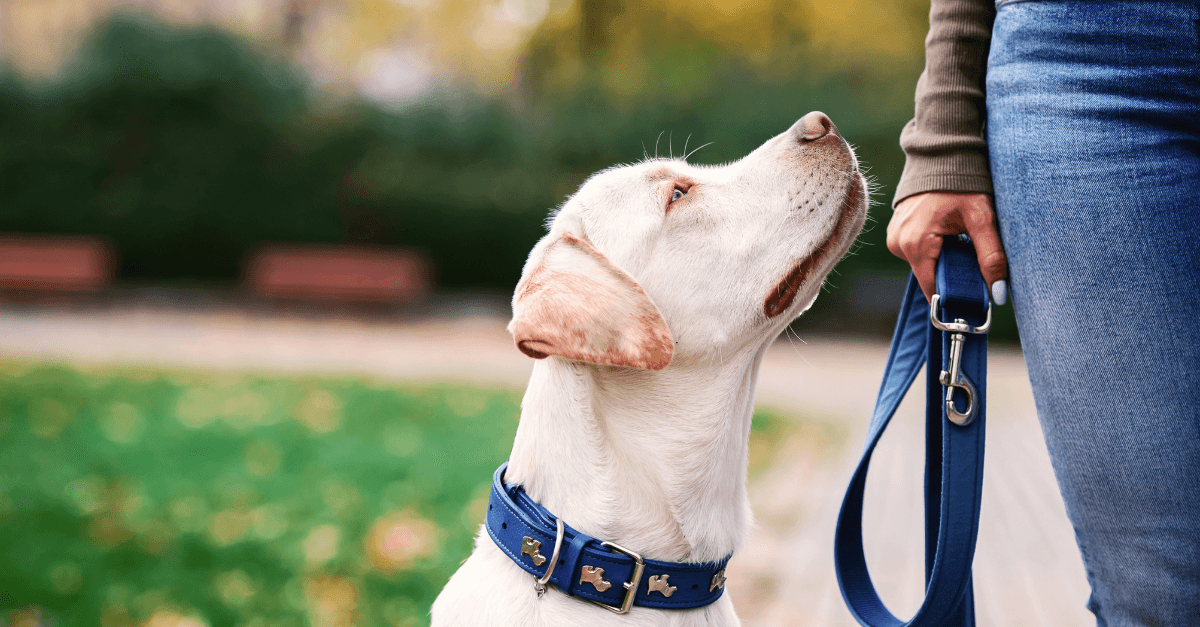Canine behaviourist near me: costs and what services to expect
Wiki Article
Understanding the Role of a Veterinary Behaviourist in Pet Training and Health
The duty of a veterinary behaviourist is vital in addressing the complex relationship between family pets and their owners. They integrate veterinary medication with insights from pet behavior science to tackle concerns like aggression and anxiousness. Unlike traditional instructors, their technique focuses on the underlying sources of these actions. This nuanced perspective elevates concerns about the efficiency of traditional training methods and just how a deeper understanding can change pet wellness. What techniques do they utilize to accomplish these outcomes?What Is a Veterinary Behaviourist?
A vet behaviourist is a specific specialist who concentrates on understanding and resolving the behavior problems of pets, particularly pet dogs. Their knowledge integrates vet medicine and animal habits scientific research, allowing them to detect and deal with a variety of behavioral issues - board certified veterinary behaviourist. These experts usually hold innovative levels, such as a Master's or PhD in animal habits, and are accredited by pertinent organizations, guaranteeing they have a deep understanding of pet psychologyVeterinary behaviourists evaluate animals via detailed observation and analysis, taking into consideration variables such as genetics, atmosphere, and training background. They create tailored therapy strategies, which may include desensitization techniques, positive reinforcement methods, and ecological adjustments. Partnership with animal proprietors is essential, as they offer support and assistance throughout the training process. Inevitably, the objective of a vet behaviourist is to boost the health of the pet while promoting an unified connection in between family pets and their proprietors.
The Significance of Comprehending Pet Habits
Comprehending animal habits is essential for both pet proprietors and professionals in the field of animal treatment, as it lays the structure for effective communication and training. Recognizing how pets regard their setting and reply to stimulations enables caretakers to produce a much more unified living circumstance. Insight into behavioral cues, such as body language and vocalizations, promotes more powerful bonds between animals and their owners. By appreciating the all-natural impulses and needs of various types, individuals can customize their training approaches to fit these elements, advertising far better discovering and cooperation. Additionally, a strong understanding of behavioral scientific research aids in determining stressors and prospective triggers, enabling aggressive interventions. Generally, comprehending pet habits not only boosts the wellness of pets however likewise improves the experiences of those who care for them, inevitably resulting in much healthier, happier connections.Typical Behavioral Issues Dealt With by Vet Behaviourists
Vet behaviourists often deal with usual behavioral issues in pets, consisting of aggression and anxiety reactions. They additionally concentrate on stress and anxiety and stress and anxiety management, which can substantially affect a pet's well-being. Recognizing these issues is necessary for developing efficient training and treatment techniques.Aggressiveness and Worry Actions
While numerous pet proprietors might see aggression and anxiety feedbacks as straightforward behavior issues, these intricate reactions typically come from underlying stress and anxiety or previous injury. Vet behaviourists play a necessary role in determining the source of these actions, which can manifest in numerous kinds, consisting of growling, attacking, or excessive fear of certain scenarios. Understanding these triggers is important for creating effective training strategies tailored to each animal's distinct conditions. Behaviourists utilize techniques such as desensitization and counter-conditioning to assist family pets manage their concerns and aggression. Additionally, they educate pet dog proprietors concerning appropriate administration methods, stressing the importance of perseverance and consistency. Resolving aggression and concern responses not only boosts the pet dog's lifestyle however likewise enhances the bond between animal and proprietor.Anxiousness and Stress Administration
Anxiety and stress are widespread problems that numerous pets deal with, commonly arising from changes in their environment, absence of socialization, or previous unfavorable experiences. Vet behaviourists play a vital function in recognizing the underlying reasons for these concerns. They use various strategies, consisting of behavioral adjustment, desensitization, and counter-conditioning, to help pet dogs handle anxiety. On top of that, they might suggest environmental adjustments, such as producing secure areas or supplying enrichment tasks that advertise relaxation. Partnership with family pet owners is important, as behaviourists guide them in comprehending their pet's signals and applying efficient coping techniques. By addressing stress and anxiety and stress, veterinary behaviourists add significantly to boosting the general health and high quality of life for pet dogs and their family members.Just How Veterinary Behaviourists Differ From Typical Instructors
Vet behaviourists vary from traditional fitness instructors largely in their educational histories and training. While standard instructors commonly concentrate on obedience and basic commands, veterinary behaviourists stress understanding and dealing with underlying behavioral concerns, including clinical considerations right into their strategy. This distinct focus allows them to supply a more complete therapy for pet dogs with complex behavioral challenges.Education and Training Differences
Recognizing the difference between vet behaviourists and typical fitness instructors is necessary for animal proprietors looking for reliable training options. Veterinary behaviourists have advanced degrees in veterinary medication, frequently complied with by specialized training in pet practices. This education and learning outfits them to deal with intricate behavioral concerns that might originate from medical problems or psychological variables. In contrast, typical trainers normally have certifications from training programs that focus on obedience and basic commands without delving into the underlying psychological or medical elements. While both professionals intend to improve family pet behaviour, veterinary behaviourists can diagnose and treat behavioural problems holistically, integrating medical understanding into training techniques. This critical difference highlights check that the importance of picking the best specialist based on the family pet's particular requirements.Concentrate On Behavioral Issues
Dealing with behavioural concerns requires a nuanced technique that differentiates vet behaviourists from traditional fitness instructors. While conventional trainers commonly concentrate on obedience and fundamental commands, veterinary behaviourists discover deeper right into the underlying root causes of problematic behaviors. They utilize a comprehensive understanding of pet psychology and therapy methods, which are rooted in clinical research study. This experience enables them to recognize concerns coming from stress and anxiety, anxiety, or hostility, instead of merely dealing with surface-level symptoms. Additionally, veterinary behaviourists analyze the family pet's total well-being, taking into consideration environmental variables and the animal's background. By integrating clinical knowledge with behavioural strategies, they give customized remedies that promote long-term behavioural change, guaranteeing both the animal's and owner's quality of life are noticeably boosted.Medical Factors To Consider Consisted Of
While standard instructors may overlook hidden medical problems, vet behaviourists prioritize a comprehensive analysis of an animal's health as a fundamental step in dealing with behavioural issues. This technique allows them to determine prospective medical problems that may contribute to undesirable behaviours, such as anxiety, discomfort, or neurological conditions. By integrating medical examinations into their method, veterinary behaviourists can work together with veterinarians to assure a holistic understanding of the animal's well-being. Furthermore, they can advise proper therapies or adjustments to training strategies based on medical findings. This considerable perspective identifies veterinary behaviourists from typical instructors, as they attend to both behavioral and health-related aspects, ultimately resulting in extra reliable and sustainable results for pets and their owners.
The Process of Dealing With a Vet Behaviourist
Collaborating with a veterinary behaviourist includes a systematic technique to addressing a pet's behavioral problems. The process starts with a substantial assessment, where the behaviourist collects comprehensive info regarding the animal's background, setting, and certain actions that are problematic. This commonly includes questionnaires, meetings with the pet dog proprietor, and often monitorings of the animal in its setting.Following the evaluation, the vet behaviourist develops a customized intervention strategy that may consist of important link behavioral alteration methods, training strategies, and, if essential, recommendations for clinical examinations. board certified veterinary behaviourist. The strategy is designed to be useful and attainable, ensuring that it fits seamlessly right into the pet dog owner's way of life
Subsequent follow-up sessions are important to monitor progression, readjust techniques, and offer support. This collaborative effort not just intends to change unwanted habits but additionally to boost the overall health of the pet, guaranteeing a harmonious partnership in between the animal and its proprietor.
Enhancing Your Pet dog's Lifestyle With Behavioral Assistance
Enhancing a pet's lifestyle through behavioral support is essential for cultivating a healthy and balanced and satisfying relationship in between pets and their owners (board certified veterinary behaviourist). Vet behaviourists play a vital function in recognizing and resolving behavioral issues that might hinder an animal's well-being. With customized approaches, they assist ease anxiety, anxiety, and aggressiveness, eventually promoting a more balanced and satisfied petBehavioral support encompasses various strategies, including positive support, environmental enrichment, and socializing. By implementing these methods, owners can create a caring setting that urges positive actions. This not just improves the animal's psychological health yet also strengthens the bond between family pet and owner.
In addition, normal examinations with a vet behaviourist assurance that any kind of arising behavioral issues are immediately resolved, stopping rise. Generally, buying behavior assistance is an aggressive strategy that substantially improves a family pet's life, causing improved physical and psychological health Learn More Here and wellness end results.
Regularly Asked Concerns
What Certifications Do Veterinary Behaviourists Possess?
Vet behaviourists commonly hold a vet degree, followed by specialized training in pet habits. Many additionally possess certifications from identified companies, showing their knowledge in attending to animal behavior issues and promoting general animal wellness.Can Veterinary Behaviourists Suggest Drug for Animals?


Veterinary behaviourists, having veterinary levels and specialized training, can undoubtedly suggest drug for pet dogs. This ability enables them to deal with underlying behavior problems effectively, typically combining medicinal therapy with behavior alteration strategies for finest end results.
Just How Long Does Behavior Modification Usually Take?
Behavioral treatment period varies significantly, typically ranging from a couple of weeks to numerous months. Factors affecting this timeline consist of the pet's particular issues, uniformity of training, and the proprietor's involvement in the process.Are Remote Assessments Readily Available With Veterinary Behaviourists?

Just how much Does a Veterinary Behaviourist Consultation Expense?
The price of a vet behaviourist appointment normally ranges from $100 to $300, depending on factors such as location, experience, and session length. Added charges may obtain follow-up appointments or specialized services.Report this wiki page